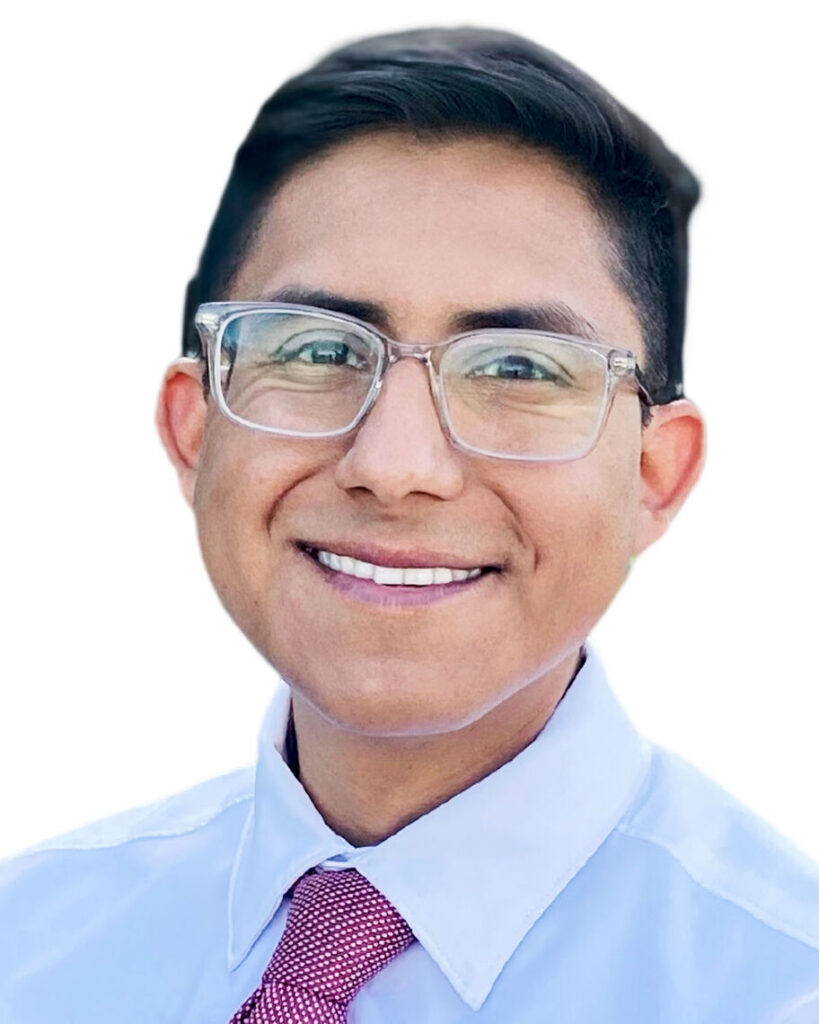- Fellow Highlights
LOOKING BACK AT THE FELLOWSHIP: JD Student Oscar De Los Santos
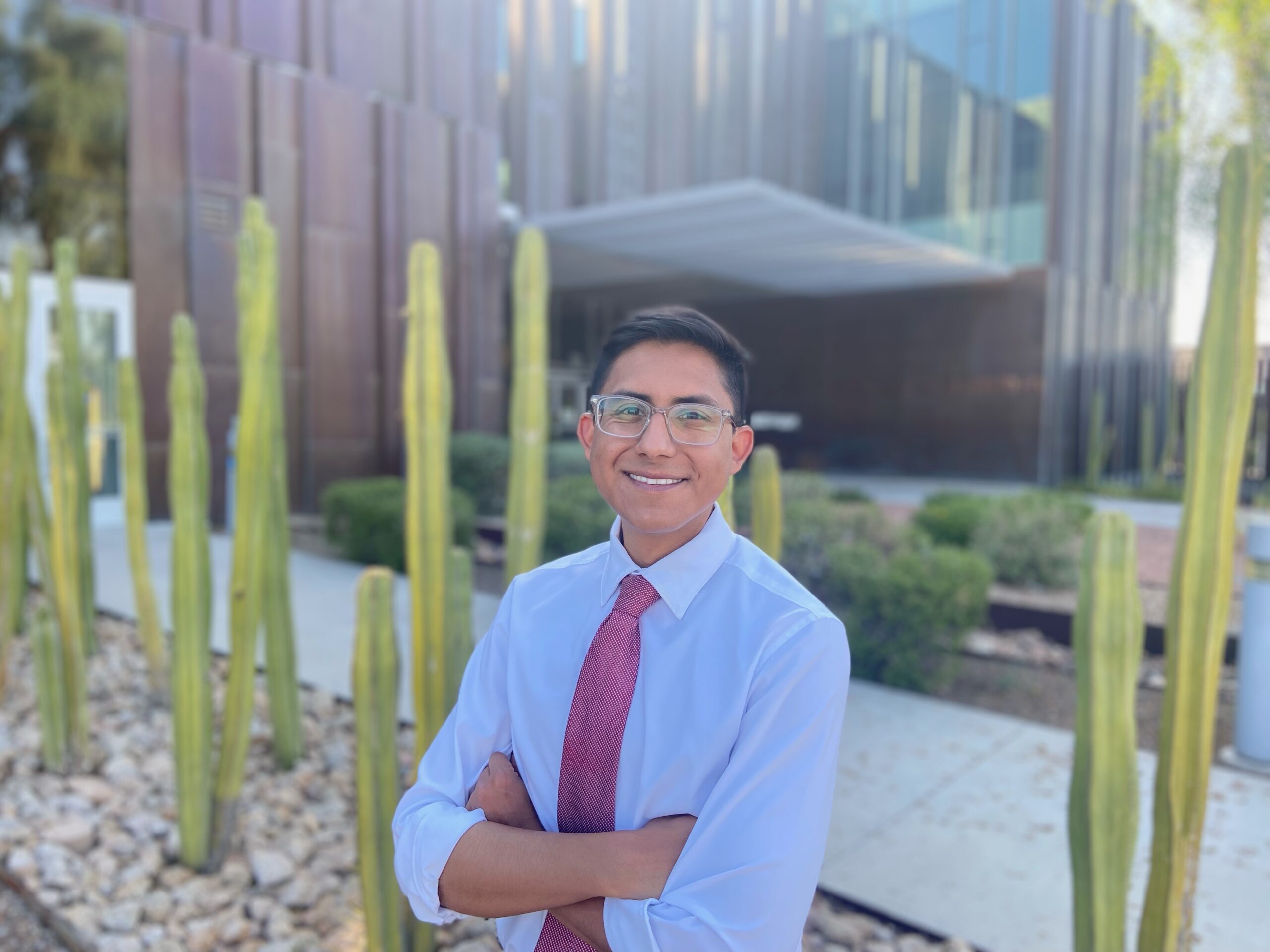
2022 Paul & Daisy Soros Fellow Oscar De Los Santos was a JD student at Yale University.
Born in Los Angeles, California, Oscar De Los Santos is the child of Gregorio and María Dolores—immigrants from Tenamaxtlán, Jalisco, México. When they were just children, Oscar’s parents migrated north in search of American wages. They spent years in agricultural fields and on assembly lines, but their hard work and commitment never added up to fundamental rights and only decades later to a pathway to citizenship. Moved by his parents’ experience of disenfranchisement, Oscar decided to dedicate his life to pro-democracy work.
Oscar graduated magna cum laude and Phi Beta Kappa from the University of Southern California where he studied political science and was named a Truman Scholar. After graduating, Oscar worked as the head of public policy for the Association of Arizona Food Banks and led a grassroots campaign in the Arizona Legislature to defend the civil rights of low-income voters and people with felony records. He went on to receive a master’s in public policy from the University of Oxford as a Rhodes Scholar.
We caught up with Oscar about what’s next and what the Fellowship has meant to him:
Where are you with your graduate program now? Whether you’re still in school or you’ve graduated, what’s the next step for you or what are the steps you’ve taken after graduating?
I’ve just finished up my second year at Yale Law School! I’m taking the summer to work on Arizona electoral politics, after having taken my first summer to work at an immigrants rights advocacy organization.
Can you tell us more about your graduate studies? What questions were you/are you pursuing? What was/is the main focus of your studies?
The primary focus of my studies is the intersection of law, democracy, and electoral politics. I have chiefly taken up questions of judicial reform—and the careful balance between an independent judiciary and a judiciary that is subject to democratic accountability. This year, I wrote an extended paper on the history of the Arizona Supreme Court and how the Arizona Legislature (and Arizona voters) have transformed the institution over the last 112 years of its existence. In a noteworthy and timely coincidence, Arizona voters will decide in November 2024 whether to end judicial retention elections for Arizona Supreme Court justices—a feature of the court since statehood.
How do you describe The Paul & Daisy Soros Fellowships for New Americans program to others?
The Paul & Daisy Soros Fellowships for New Americans brings together a beautiful mix of ambitious, smart, energetic—and very fun!—graduate students who are all either immigrants or the children of immigrants. The Fellowship builds a tender community across geographies, academic interests, racial and ethnic backgrounds, and experiences. Through our enriching and exciting annual retreat—and gatherings throughout the year—we hear from some of the most brilliant minds in academia, culture, and politics; engage in thought-provoking and sometimes challenging conversations; and get to know one another (and the New American experience) on a deeper level.
Why did you apply to The Paul & Daisy Soros Fellowships for New Americans? What ended up being the most important part of the Fellowship?
To be frank, one of the most important parts of the Paul & Daisy Soros Fellowships for New Americans was the incredibly generous funding—both the stipend and tuition support. I do not think I would have attended Yale Law School had it not been for the Fellowship. As someone who is likely to be a “nontraditional” lawyer, it is scary to venture away from well-worn paths that law school students walk. And I wasn’t sure if taking that risk was worth the debt.
Has your sense of what it means to be a New American changed or shifted through the Fellowship experience and community?
Absolutely! I was born and raised in the American Southwest where, by and large, what it means to be a New American is shaped by a Latino (and more often than not, a Mexican) experience. It has been exciting to see all the different ways being a New American can look like. And to find beautiful similarities —and stark differences—among our experiences. ∎
Keep Exploring
-
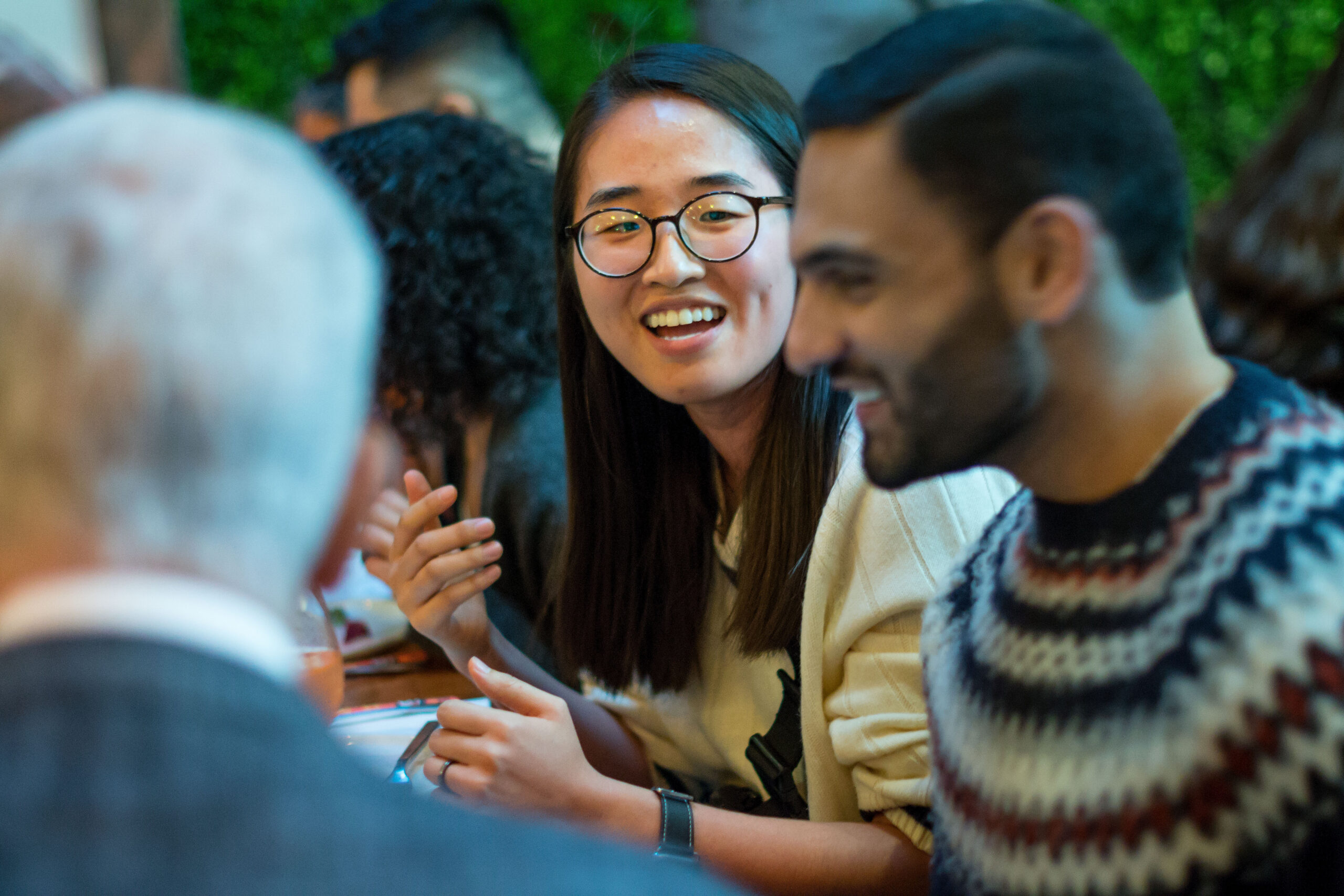 Read more: Kathy Ku Steps into Leadership as PDSFA Chair
Read more: Kathy Ku Steps into Leadership as PDSFA Chair- Board of Directors
- Fellowship News
Kathy Ku Steps into Leadership as PDSFA Chair
-
 Read more: Q&A with MD/PhD Student Silvia Huerta Lopez
Read more: Q&A with MD/PhD Student Silvia Huerta LopezQ&A with MD/PhD Student Silvia Huerta Lopez
-
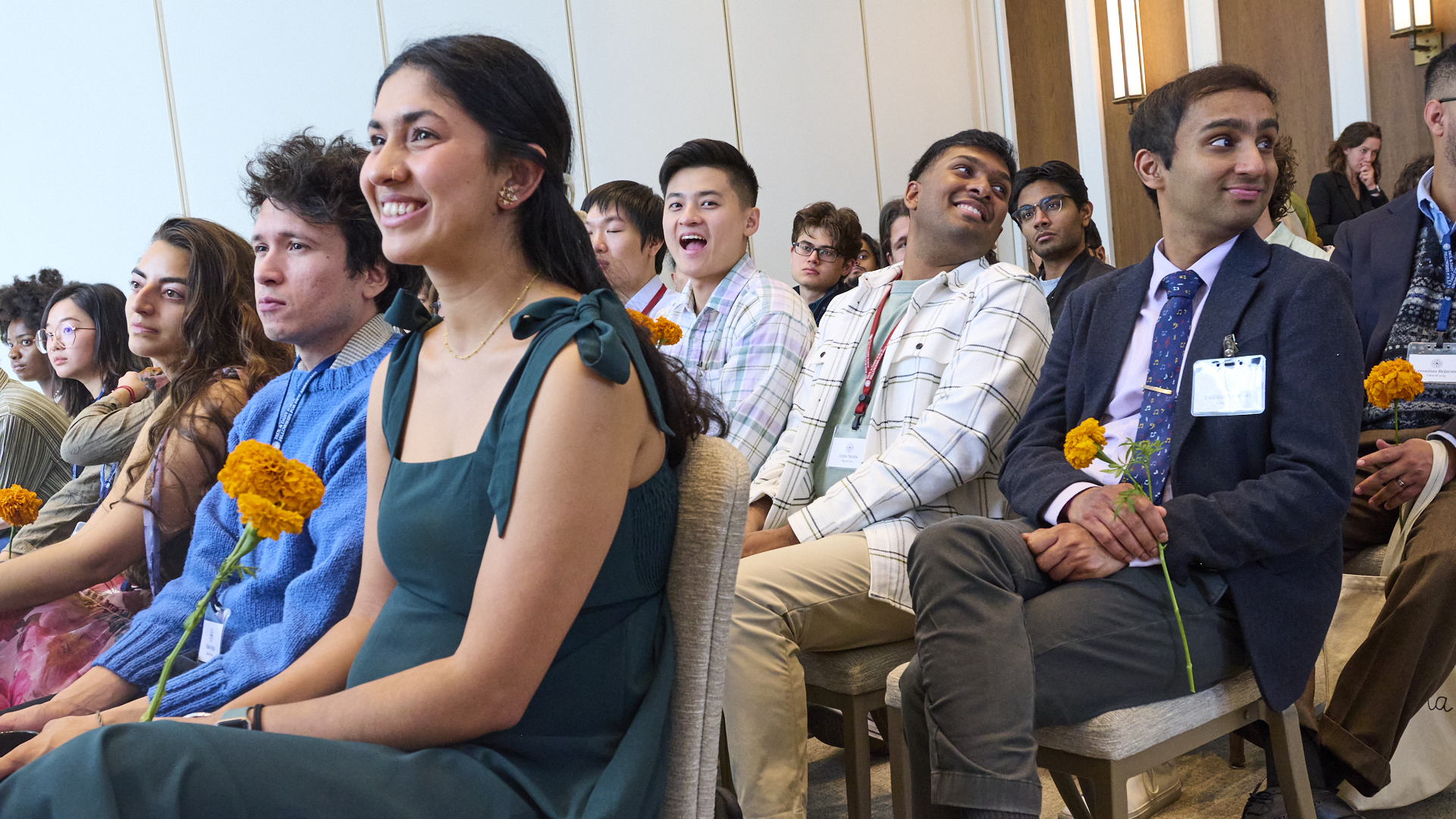 Read more: PD Soros Eligibility Guide for PhD Applicants
Read more: PD Soros Eligibility Guide for PhD Applicants- Applicant Information
PD Soros Eligibility Guide for PhD Applicants
-
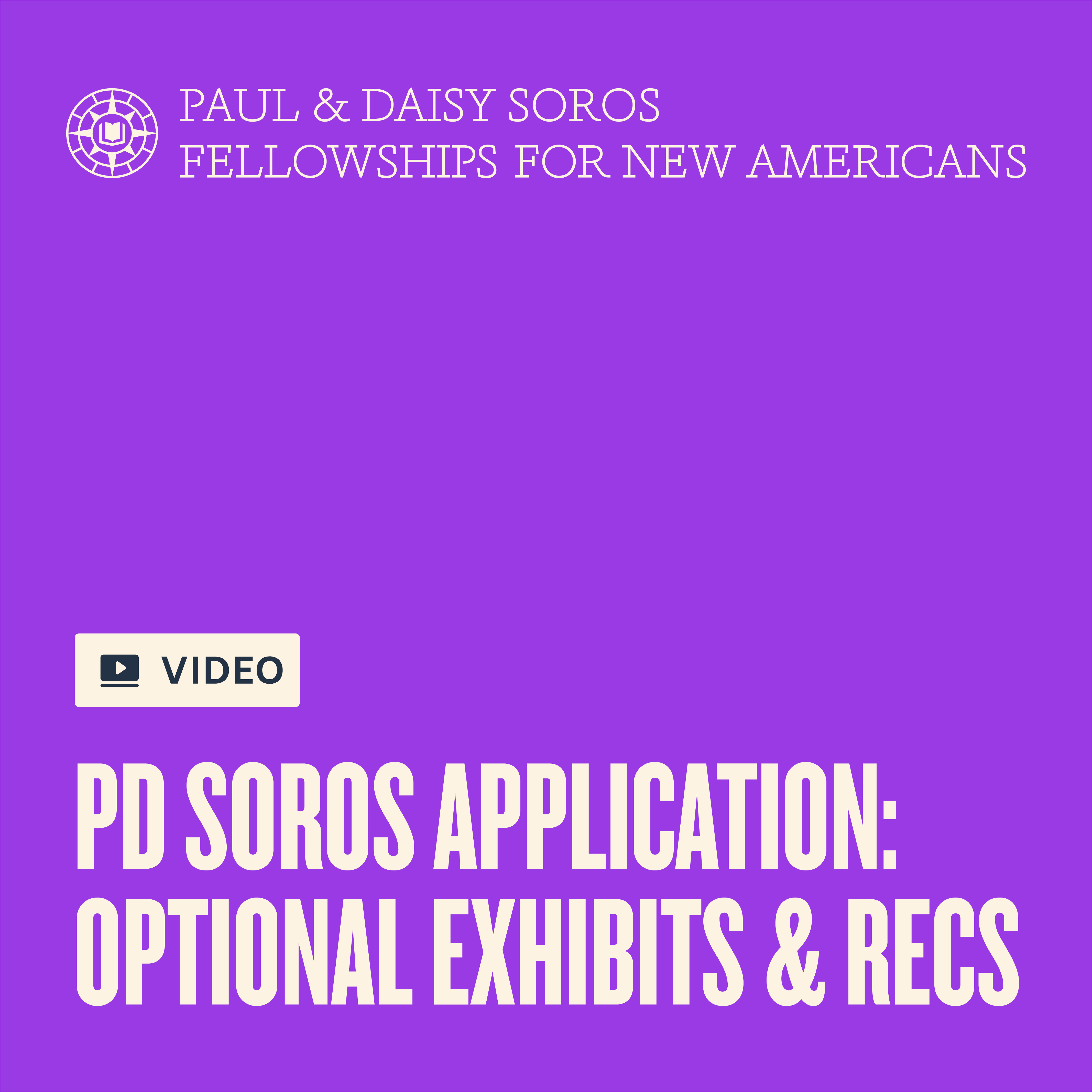 Read more: Watch: Optional Exhibits & Recommendations
Read more: Watch: Optional Exhibits & Recommendations- 2025 Information Sessions
Watch: Optional Exhibits & Recommendations
